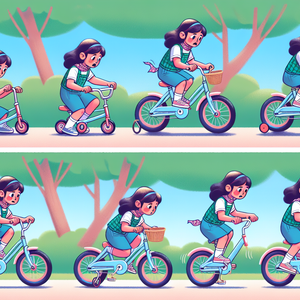The Future of Sales Development Roles: Adapting to Change in a Digital Age

One of the most significant changes in the sales development landscape is the integration of AI and automation. As AI technology continues to advance, its application in sales processes is becoming more prevalent. AI-powered tools can analyze vast amounts of data to identify potential leads, predict customer behavior, and personalize outreach efforts. For entry-level SDRs, understanding how to leverage AI tools effectively is becoming essential. For example, platforms such as Salesforce Einstein and HubSpot’s AI-driven features can help SDRs prioritize leads based on their likelihood to convert. By focusing their efforts on the most promising prospects, SDRs can work more efficiently and effectively. Furthermore, automation tools streamline repetitive tasks—such as sending follow-up emails or scheduling meetings—freeing up SDRs to concentrate on building relationships and closing deals. By embracing these technologies, new SDRs can enhance their productivity and efficiency, positioning themselves as valuable assets to their organizations.
Remote Work Opportunities
The COVID-19 pandemic has accelerated the shift toward remote work, a trend that is likely to continue in the foreseeable future. Many companies have embraced flexible working arrangements, allowing SDRs to work from anywhere. This flexibility not only enhances work-life balance but also opens up a broader talent pool for companies. For entry-level SDRs, this means increased opportunities to join companies regardless of geographical restrictions. However, it also necessitates a strong set of digital communication skills. SDRs must be adept at using collaboration tools like Zoom, Slack, and Asana to stay connected with their teams and manage their workflows effectively. The ability to communicate effectively in a virtual environment will be crucial in fostering collaboration and maintaining team cohesion.
Evolving Skills for Future Sales Professionals
As the sales landscape transforms, so too do the skills required for success. While traditional sales skills like communication and negotiation remain crucial, there is an increasing emphasis on digital literacy and adaptability. SDRs must be comfortable navigating various digital platforms and utilizing data analytics to inform their outreach strategies. Emotional intelligence is becoming a key differentiator in sales. The ability to empathize with prospects and understand their pain points can lead to more meaningful interactions. For instance, an SDR who listens actively and responds empathetically to a prospect's concerns is likely to build trust and rapport more effectively than one who merely pitches a product. Training programs and workshops focusing on emotional intelligence, active listening, and relationship-building are invaluable resources for aspiring SDRs looking to enhance their skill sets.
The Importance of Continuous Learning
In a rapidly changing landscape, the commitment to lifelong learning is vital for SDRs. Engaging in ongoing training and professional development can help sales professionals stay ahead of the curve. Many organizations now offer online courses, certification programs, and workshops that focus on the latest sales techniques, technology use, and industry trends. Additionally, networking with industry professionals through platforms like LinkedIn can provide valuable insights and mentorship opportunities. By actively seeking out knowledge and connections, SDRs can position themselves as informed and adaptable contributors to their teams. Continuous learning not only enhances individual skills but also contributes to the overall success of the sales team.
The future of sales development roles is bright, albeit filled with challenges and the need for adaptation. As technology continues to reshape the sales landscape, entry-level sales development representatives must embrace AI, remote work, and the evolving skill set required for success. By committing to continuous learning and leveraging the tools available, SDRs can not only survive but thrive in this dynamic environment. The key lies in being proactive, adaptable, and open to embracing change, ensuring that they remain relevant and successful in the ever-evolving world of sales. As the role of the SDR continues to evolve, those who recognize the importance of these trends will find themselves well-prepared for a rewarding career in sales development, contributing significantly to their organizations' success in the digital age.
AI Sales Analyst
Salesforce, HubSpot, Oracle
Core Responsibilities
Analyze sales data using AI-driven analytics tools to identify trends and customer behavior.
Collaborate with sales teams to optimize outreach strategies based on data insights.
Develop reports and presentations to communicate findings to stakeholders.
Required Skills
Proficiency in data analysis tools such as Tableau or Power BI; familiarity with Salesforce Einstein is a plus.
Strong analytical skills and attention to detail to interpret complex datasets.
Excellent communication skills for articulating insights to non-technical team members.
Remote Sales Development Representative (SDR)
ZoomInfo, Outreach, LinkedIn Sales Solutions
Core Responsibilities
Conduct outreach to potential leads via email and phone in a remote setting.
Utilize CRM tools to track interactions and manage lead pipelines.
Schedule and conduct virtual meetings and demos to engage prospects.
Required Skills
Strong digital communication skills and proficiency with remote collaboration tools (e.g., Zoom, Slack).
Ability to work independently and manage time effectively in a remote environment.
Experience with CRM software, such as Salesforce or HubSpot, is highly desirable.
Sales Enablement Specialist
HubSpot, SalesLoft, Microsoft
Core Responsibilities
Develop and implement training programs for sales teams focused on new tools and techniques.
Create sales collateral and resources to assist SDRs in their outreach efforts.
Collaborate with marketing to ensure alignment on messaging and lead generation campaigns.
Required Skills
Strong presentation and training skills, with the ability to engage and motivate sales teams.
Experience in content creation, including slide decks and instructional materials.
Familiarity with sales methodologies and strategies, such as SPIN Selling or Challenger Sales.
Customer Success Manager (CSM)
Salesforce, Zendesk, ServiceTitan
Core Responsibilities
Build and maintain strong relationships with customers post-sale to ensure satisfaction and retention.
Identify opportunities for upselling and cross-selling based on customer needs and usage patterns.
Conduct regular check-ins and reviews with clients to assess their goals and challenges.
Required Skills
Excellent interpersonal skills and emotional intelligence to manage client relationships effectively.
Strong problem-solving abilities to address customer concerns and provide solutions.
Experience with customer relationship management tools and data analytics.
Digital Marketing Specialist
HubSpot, Mailchimp, Adobe
Core Responsibilities
Create and manage digital marketing campaigns to generate leads for the sales team.
Utilize SEO, PPC, and social media strategies to enhance brand visibility and engagement.
Analyze campaign performance metrics to optimize future marketing efforts.
Required Skills
Familiarity with digital marketing tools such as Google Analytics, SEMrush, and HubSpot.
Strong writing and content creation abilities to develop compelling marketing materials.
Knowledge of data-driven marketing strategies and A/B testing techniques.


